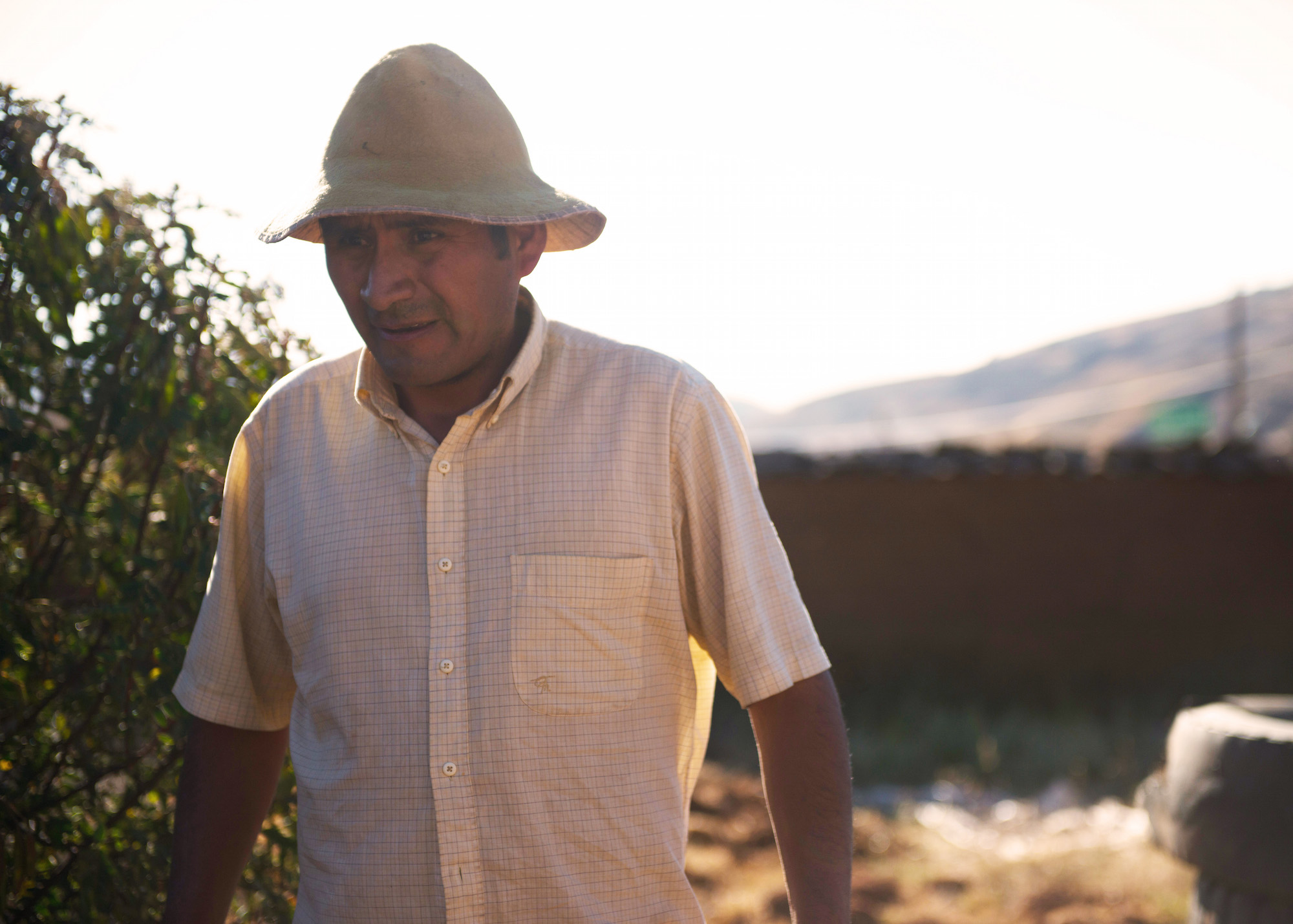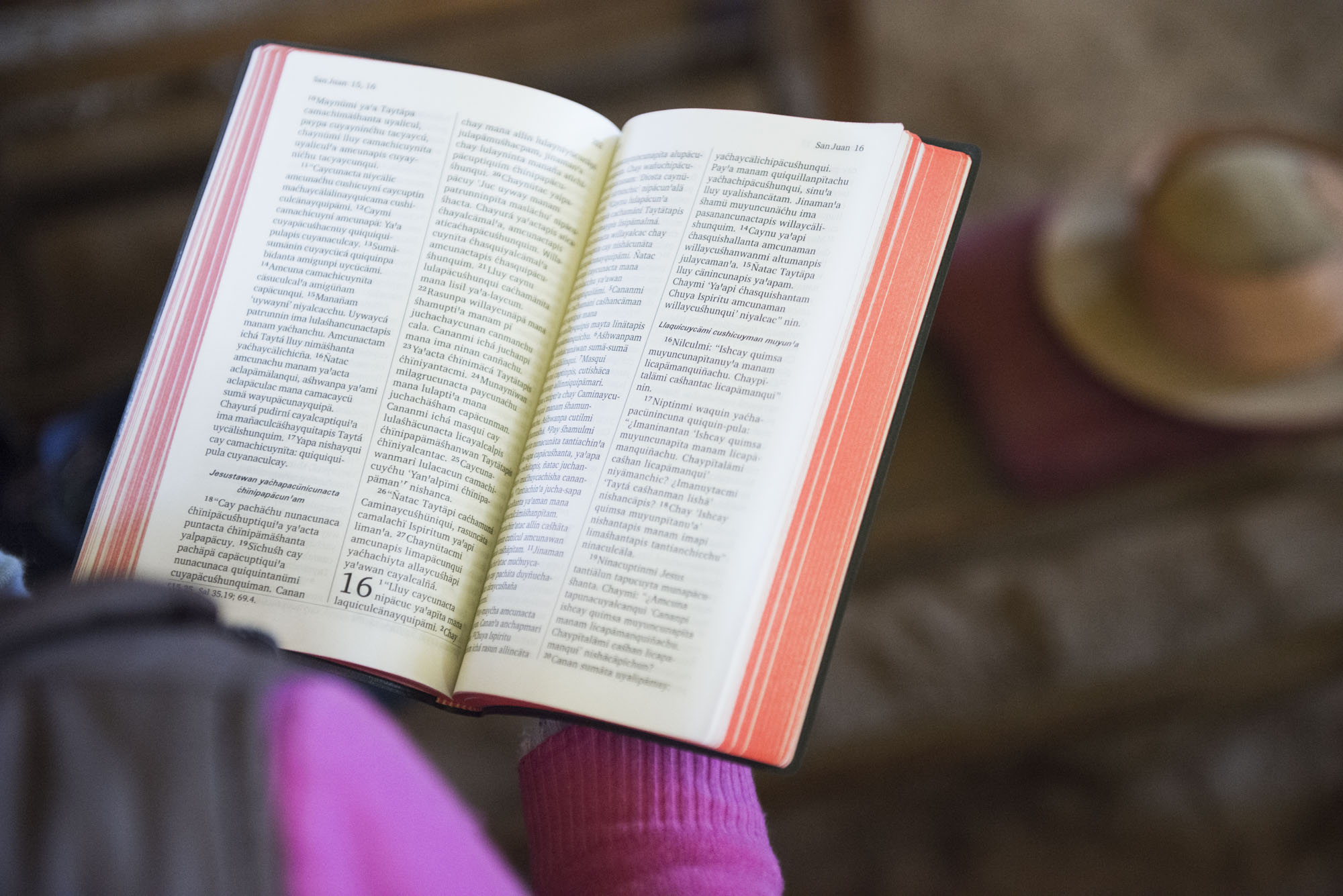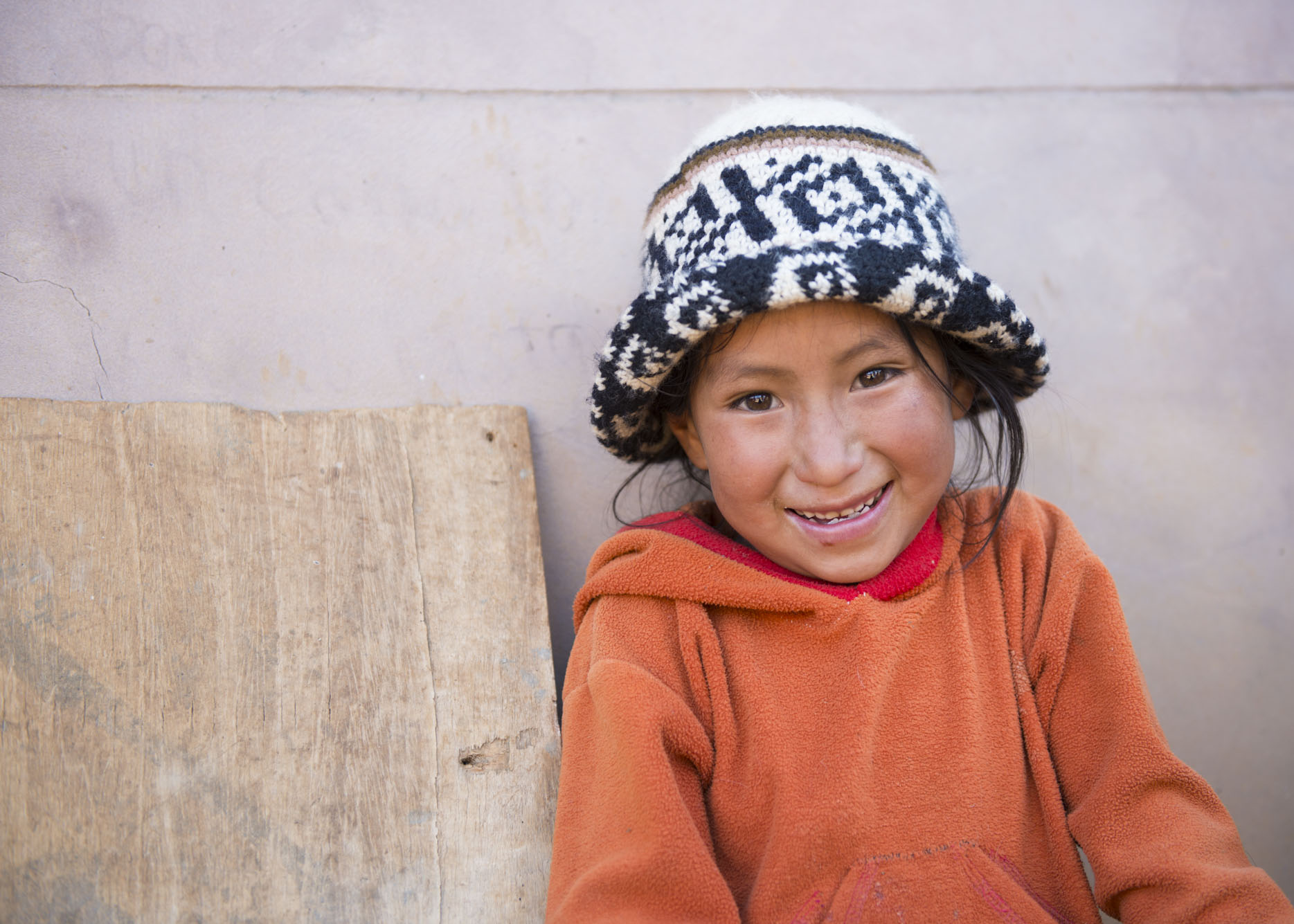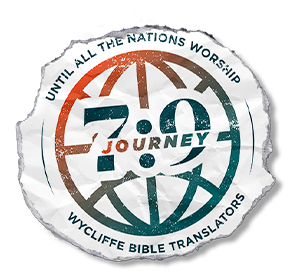Meet Amador
God taught him the value of his culture so he can teach others.

Amador grew up attending church now and then, but the messages never seemed to connect. He didn’t understand the sermons. Eventually he stopped going. What was the point of church if God felt distant and confusing?
Struggling to Belong in a Multilingual Culture
Amador rejected almost everything about his home and culture. As a member of the Wanca Quechua community in Peru, people often made fun of him. Quechua speakers have a hard time pronouncing Spanish words correctly, because they don’t have the same sounds in their language. “It makes us sound stupid,” he said. “We feel like we’re less than the people around us.”
Amador’s mom used to walk him to school, speaking Wanca to him and wearing the traditional dress that pegged her as a Wanca Quechua woman. Amador always ran ahead so other kids wouldn’t know he was with her. “They’d call me bad names — things that would make me feel embarrassed about who I was.”
Have you ever felt like Amador? Have you ever struggled to belong or understand cultural nuances around you?
For Amador, church felt confusing — even alienating — because the message wasn’t in a language that reached his heart. Sadly, he’s not alone. Around the world, millions of people still feel spiritually distant from God because they’ve never experienced Scripture in a language they understand.
That’s why we created Journey 7:9 — a guided email experience where you’ll travel the world through experiencing powerful stories of people who have met God in a way that finally makes sense to them. It’s a glimpse into what can happen when God’s Word truly connects in a language and format that touches your heart.

Understanding the Gospel for the First Time
Several years later Amador visited his parents and reluctantly attended a church service with his dad. But something was different. Instead of preaching in Spanish, as Amador expected, one of the elders was preaching in Wanca Quechua. For the first time, Amador understood the gospel!
“It touched my heart,” he said. “I wanted to accept Christ and begin to serve Him. That man [the elder] was a great encouragement to me. He wanted me to grow, and he discipled me.”
Amador returned to the church and started serving with the youth group. He and other leaders would have regular church meetings in Spanish with people from other communities, and it always seemed that the Quechuas just weren’t getting it. “Around here most people’s faith is so superficial, even though they grow up in church and they’re Christians,” Amador said.

When people became really sick, Christian or not, they’d visit the local shamans to get well. Even Amador’s dad, when he got really sick, snuck away to the shaman despite the stigma. Families also fought a lot, and there was a lot of bitterness and anger in the community. Sometimes the problems were worse among Christian families than anyone else.
“I’d see these practices and think, ‘Why is it that Christians who believe in God are going to shamans and doing things that aren’t biblical?’” Amador said. “‘How is it that we’re serving the Almighty God and yet we have all these internal struggles?’
“I wanted to make sure people had a clear understanding of the Word of God,” he said. “Could it be that we’re not teaching well? Could it be that because we’re Quechuas, we’re just too stupid to really get it?”
Do you know what it’s like to say you believe something but still struggle to live it out?
Have you ever seen people claim to follow God, yet make choices that don’t match His Word?

Receiving God’s Word in Wanca Quechua
One day a man from the Wanca Quechua Bible translation team showed Amador a copy of the Gospel of Mark. It was like a jolt, Amador said. “Oh! Could it make any difference to have it in our own language? It had never occurred to me before, but from that moment I realized that this way people can truly understand, if they hear it in their own language.”
Amador’s eyes were opened to the value of his own culture. “God has given us our language,” he said. “We could use that to share the gospel with our own people, and it would reach so much deeper into our minds and into our hearts.”
He joined the Wanca Bible translation team to help everyone see their culture through God’s eyes and understand His Word.
When Amador discovered that God speaks his language, it changed how he saw himself and his entire community.
That kind of heart-level transformation starts early. Looking for meaningful ways to help kids explore God’s love for every culture and language?
Check out these 3 simple ways to help kids see God’s heart for the world.
“Didn’t God give the same Holy Spirit to all of us?” Amador asked. “The Word of God gives us what we need to realize that we’ve all been created equal before God, and we have just as much value as anyone else. Even if all we speak is Wanca, that’s good enough. God accepts us as we are.
“The Bible is important to me because it’s the way God speaks to us directly — through the letters, through the words,” he continued. “It’s that Word speaking to me that gives us what we need for life, so that we can come to know Christ and know salvation.
“If as Christians we don’t give priority to the Word of God as the main foundation of our beliefs, we’re going to be led astray by different beliefs we might acquire from our own culture. The Bible gives us what we need to be well-grounded.”
God’s Word grounds us and helps us to navigate life. How have you allowed the Bible to shape your choices and actions?

Seeing Transformation in the Community
Having God’s Word in Wanca Quechua made a world of difference in Amador’s community, and especially in his own family. His dad passed away two years ago, but before he died he finally started studying Scripture in his language. He stopped going to the shaman and started seeking God instead.
Even the week before his death, as his health and eyesight deteriorated, he spent hours straining, studying the Bible.
“Only God could have changed my father in that way,” Amador said. “It was because the Word of God was in his own language that it made sense to him.
“I’ve come to realize that teaching, preaching and doing these things in Wanca — it’s a gift the Lord has given me. It’s a gift the Lord has given our people,” he said. “While the Lord gives me breath and strength, I’m committed to teaching the Word of God to our people in our language.”


Passing on the Gift of God’s Word
Imagine trying to grow in your faith without clearly understanding God’s Word. That was the reality many Wanca Quechua speakers — and many more communities around the world — faced for generations.
Amador’s story reminds us that the gospel becomes personal when it’s shared in a language people truly understand. Bible translation isn’t just about words; it’s about transformation.
Today more people are receiving the Good News in their own language than ever before. And lives are changing — one verse, one family, one community at a time.
You don’t have to travel to Peru to be part of what God is doing. Stories like Amador’s are possible because people like you step into God’s mission, helping others encounter Scripture in a way they clearly understand.
When you pray for, give to or share about Bible translation, you help create moments of lasting change — where shame is replaced with dignity and people discover their true worth in Christ.
How will you help more communities experience God’s Word for themselves?
Journey With Us
New to Wycliffe? Travel the world virtually with us and pray along the way. No passport needed!
Book Your Trip






